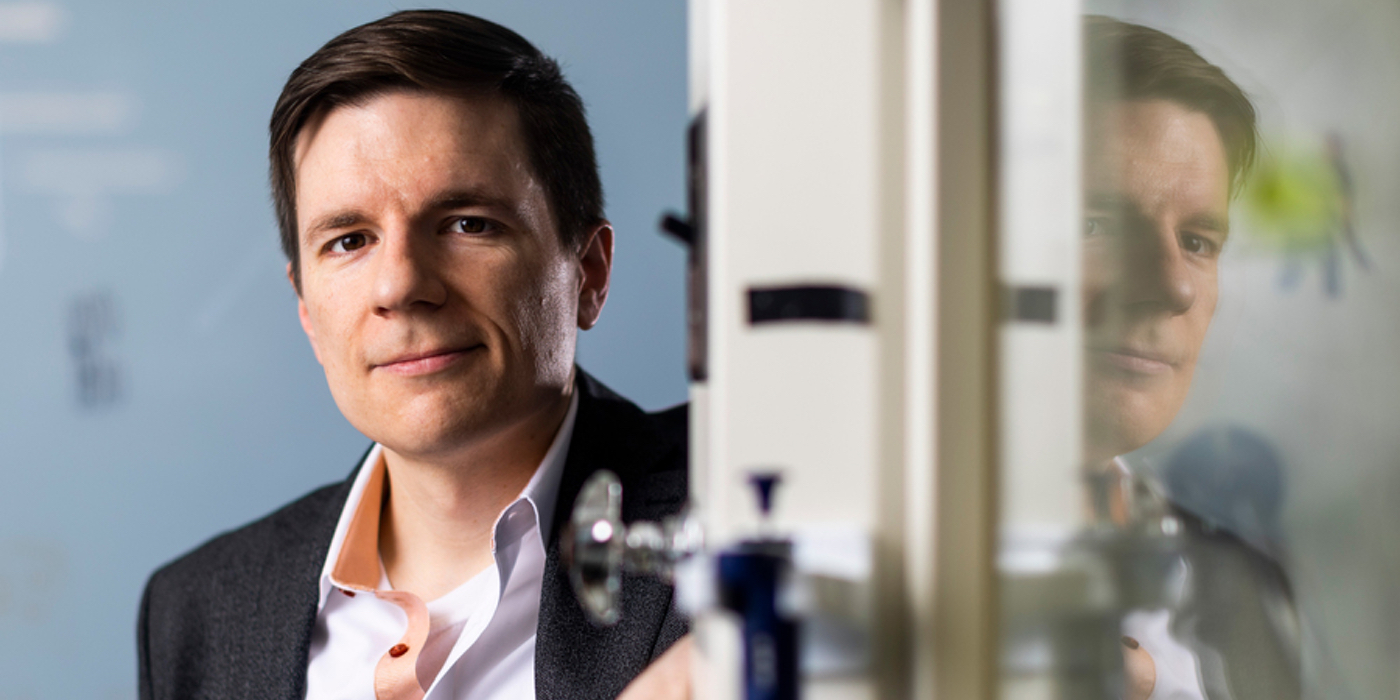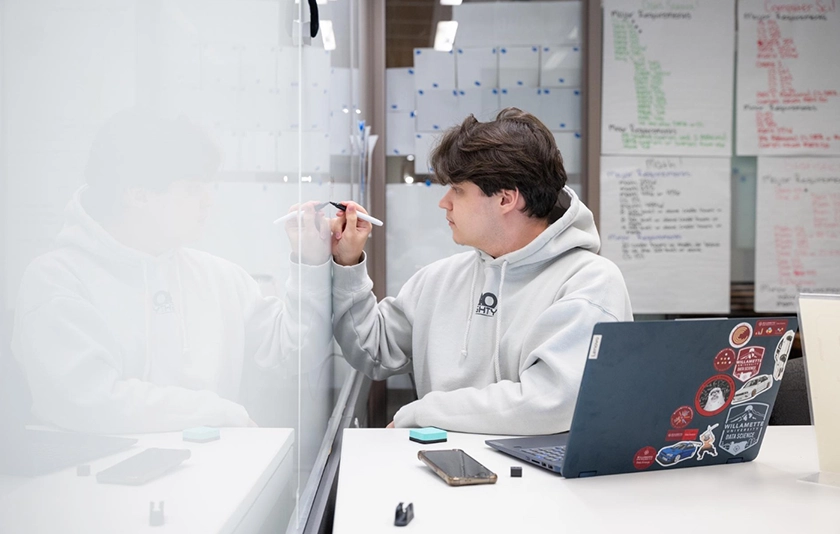Associate Professor of Materials Science and Engineering Robert Macfarlane BA’04 runs the Macfarlane Lab at MIT, which explores how chemical sciences impact materials development.
“Materials Science uses knowledge of chemistry, physics, and other related disciplines to understand the physical world of the objects and devices that we use and interact with on a day-to-day basis,” says Macfarlane. “The discipline involves both investigating how the chemical bonds between atoms that make up a material influence that material’s properties, and then using that information to develop new materials with improved or wholly novel properties.”
Despite a busy schedule of teaching and working to design new nanocomposites to engineer a better world, Macfarlane remembers — and uses — the knowledge he first picked up from many courses at Willamette, including both classes in his chosen major and classes he took as part of Willamette’s interdisciplinary liberal arts education.
“One of the most influential classes I took at Willamette was a class about understanding the way we construct our arguments and how people are convinced (or not) by various rhetorical methods,” Macfarlane says. “I remember it being very formative in terms of the way I think about communication and the way I analyze different types of argumentation and reasoning,” he added. “A big part of my career as a research scientist requires communicating clearly, succinctly, and persuasively–my efforts in writing grants, publishing research papers, lecturing to students, and speaking with the general public all benefit from having this guiding experience at Willamette.”
Macfarlane also incorporates what he learned at Willamette into the classes he teaches, including Intro to Solid State Chemistry. “Basically, it’s Intro to Chem but with a Materials Science flavor to it,” he says. “I teach the same things in that course that I learned from Professor of Chemistry and Department Chair Chuck Williamson at Willamette.”
Macfarlane adds he wouldn’t mind finding his notes from that class. “It’s the core knowledge that I gained from Professor Williamson and Professor Karen Holman and others. It’s certainly in the DNA of everything that the course is and informs how I think about science and chemistry — the research that I do now and what I teach.”



